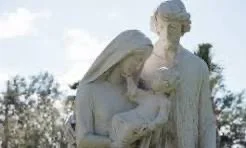Studying the Word of God
Why? Nowhere in the US Constitution is Jesus Christ or God playing a part. It is amazing that the USA destroyed itself in less than 250 years, after the signing of the US Constitution. Is that why the wigs from the Whigs were needed? Here is what AI (Artificial Intelligence) has said about God and his son, Jesus Christ.
The first thing that comes to my mind is how man turned Sunday into the Lord’s day and God tolerates that! It is written that the Sabbath day is Saturday and the word of God through Jesus Christ allows for the manipulation and confusion for the first day of the week! Christ teaches us that the Sabbath was made for man and not the other way around, so as human nature would have it, manipulation into God’s word! -Cliff Tompkins
Idolatry is Adultery, physically or spiritually! (Study of God’s word)




